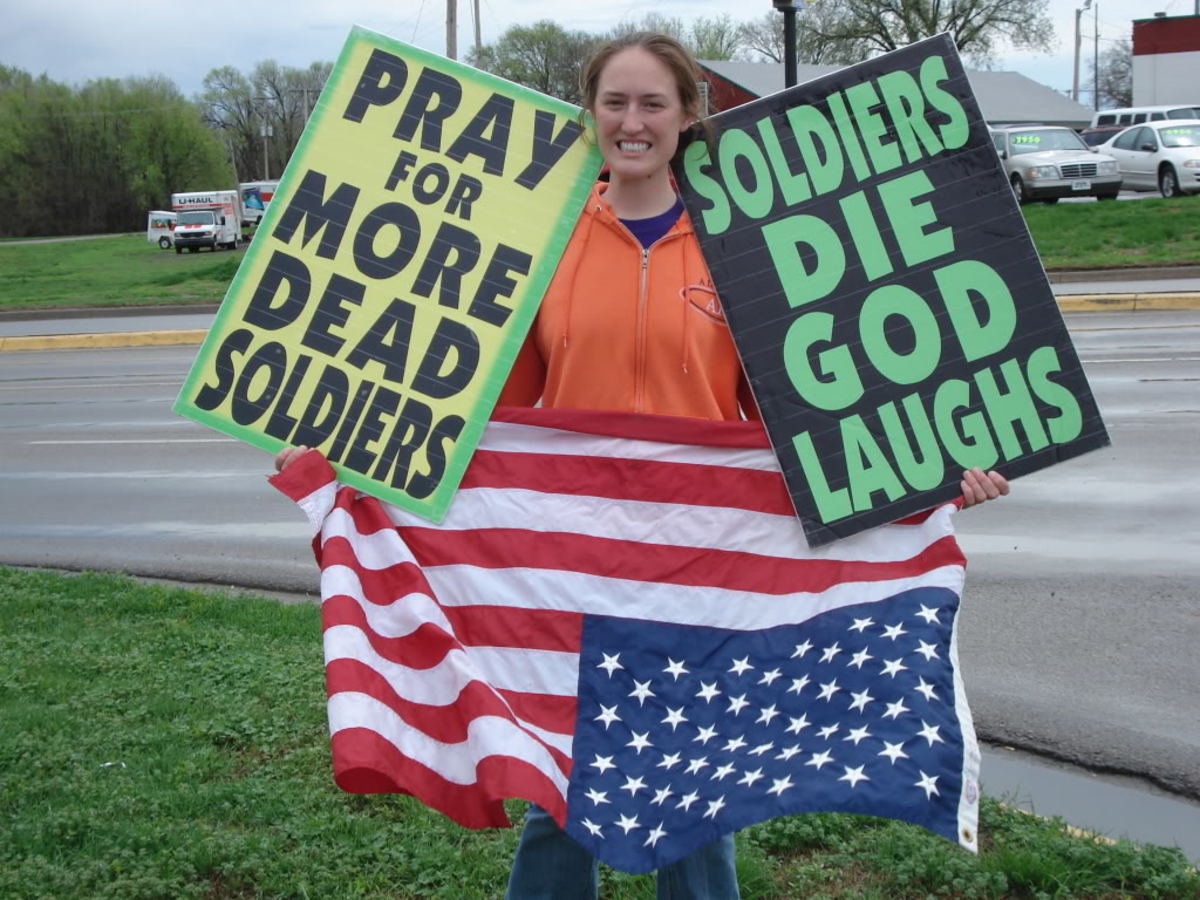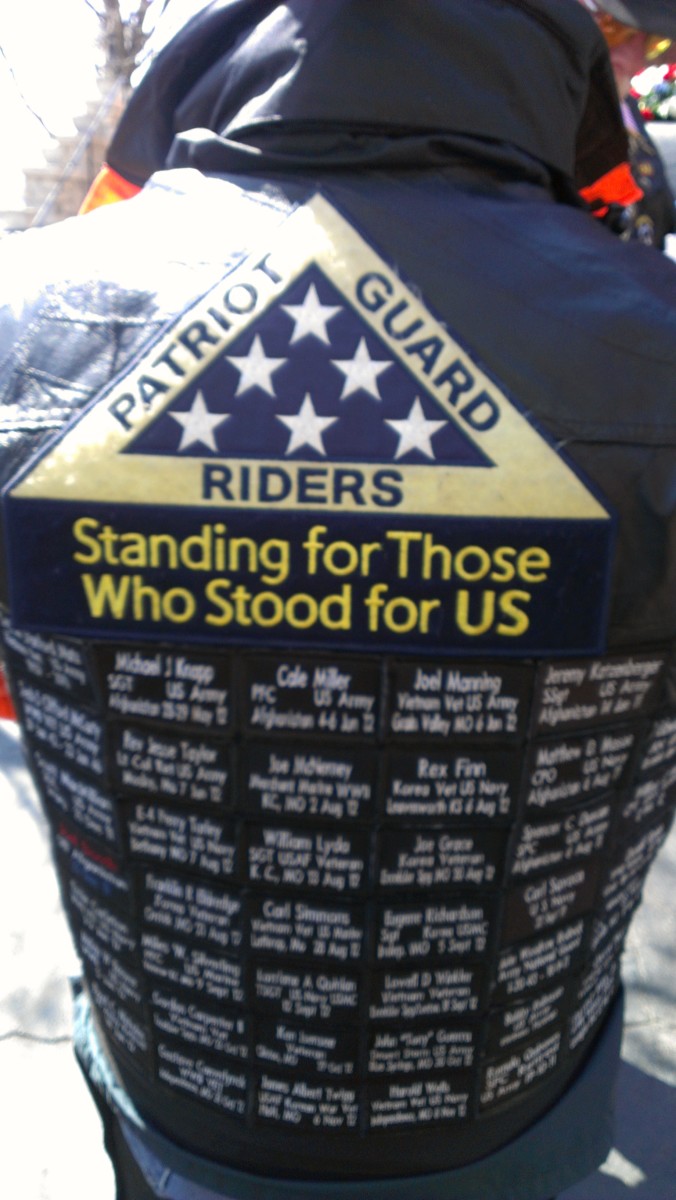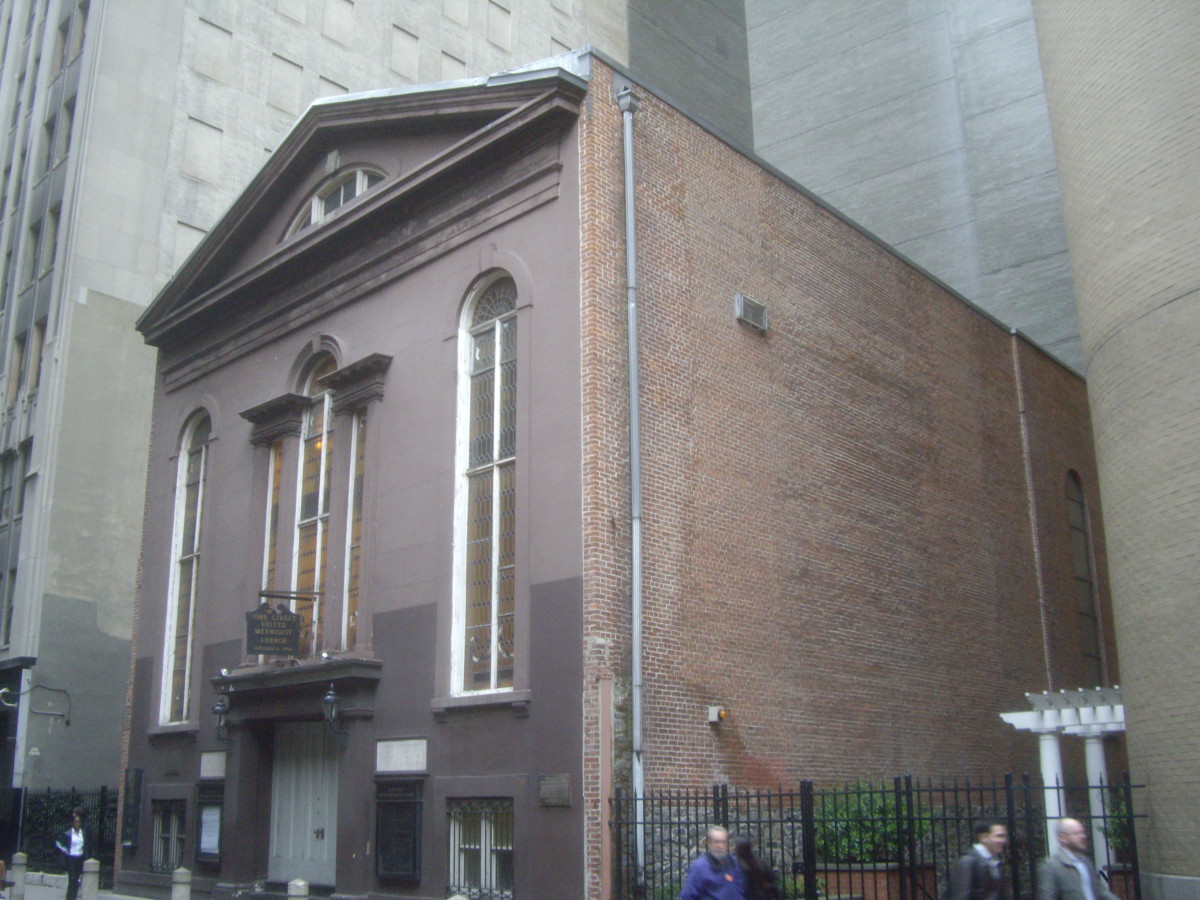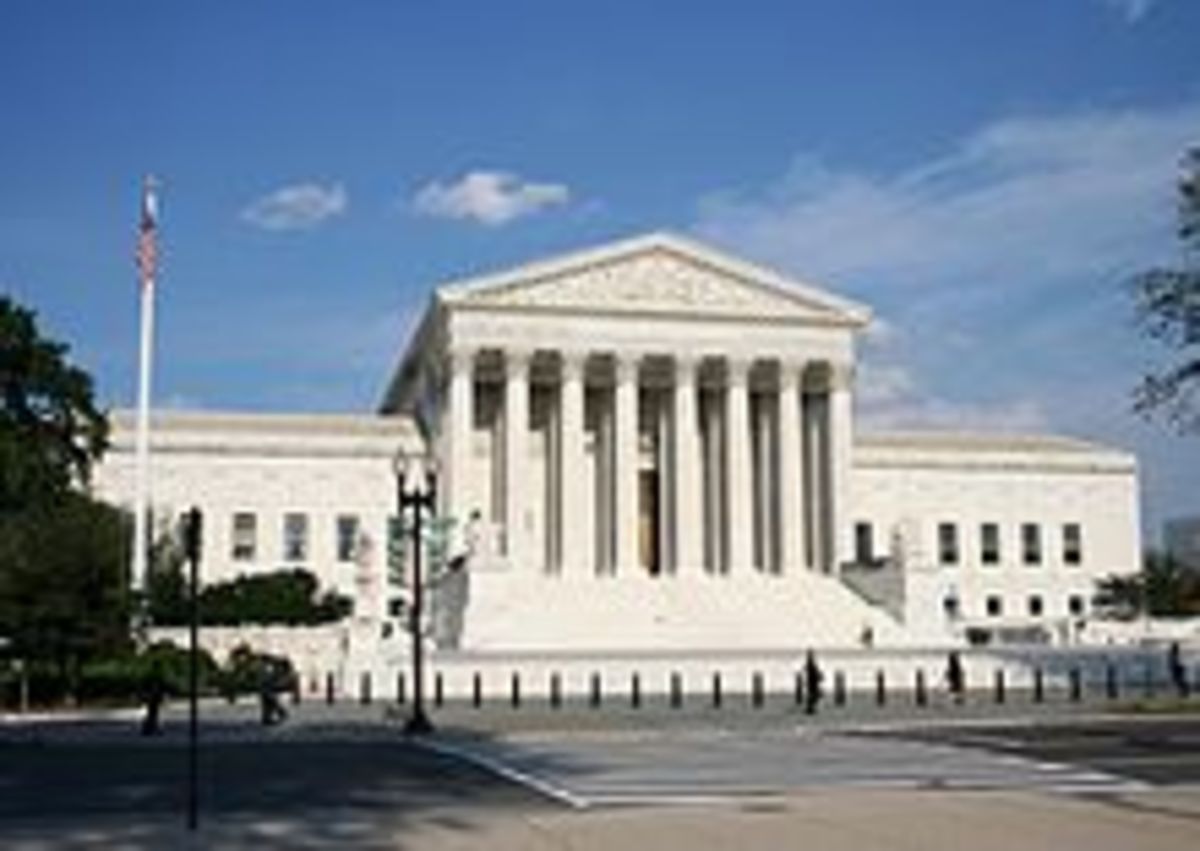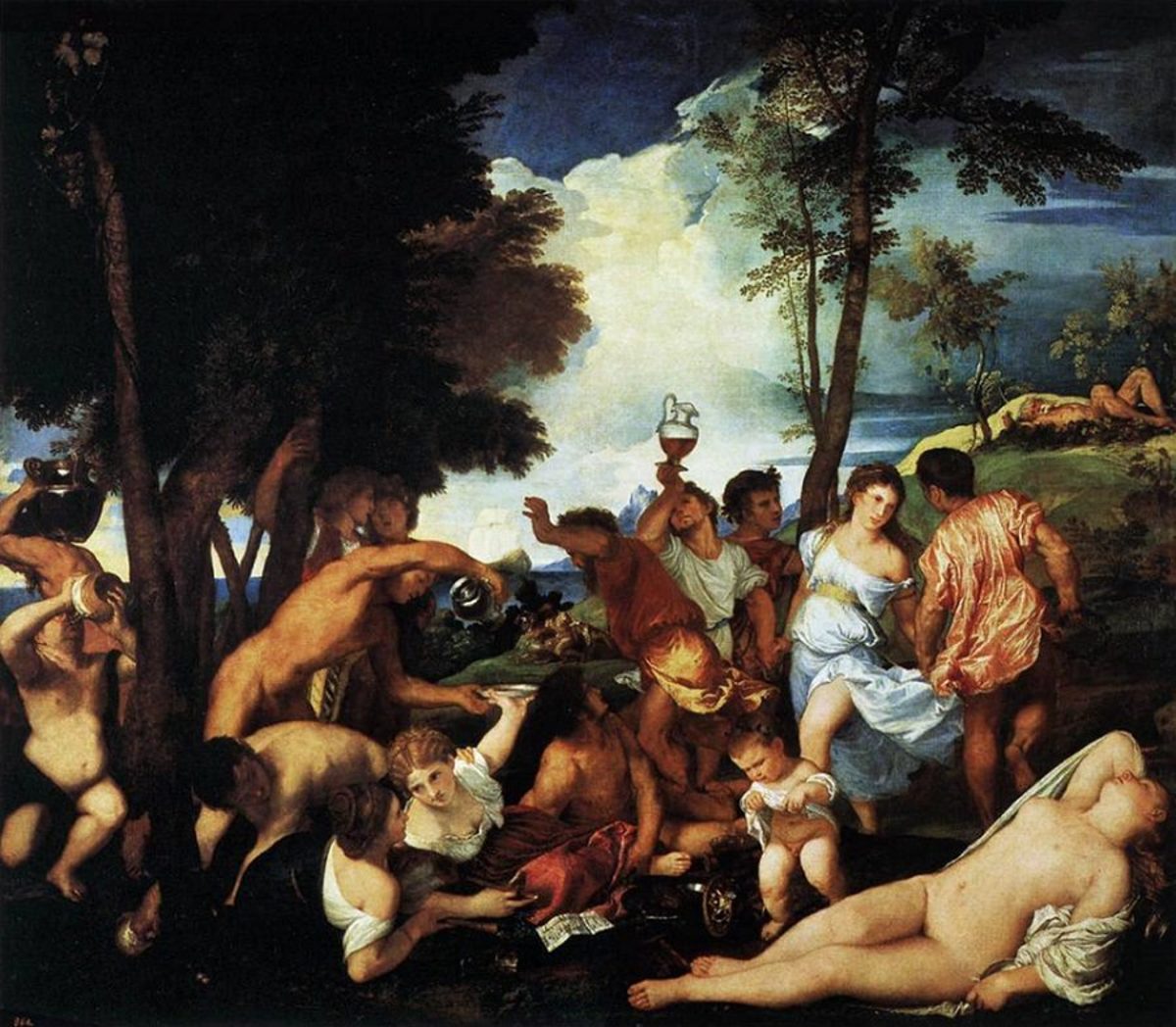Westboro Baptist, Society of Hate
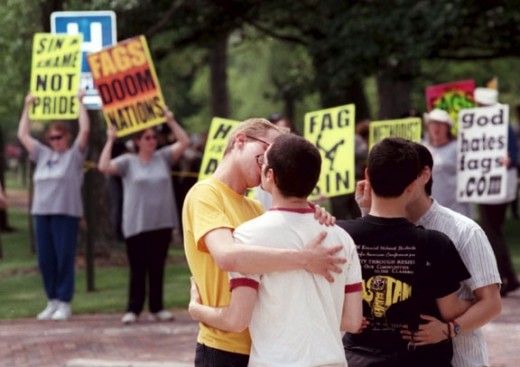
Does Westboro Baptist Church have the Right to Speak
Abstract
The Westboro Baptist Church has been the center of discussion and legal mitigation involving freedom of speech afforded by the first Amendment of the Constitution of the United States (Walter, 2009). The fundamental Baptist organization spends its time and resources traveling the country, and sometimes abroad, to protest Jewish organizations, advocates of homosexuality, and funerals of fallen veterans of war (Godhatesfags, 2010). They hold signs up that say “Jews killed Jesus”, “God hates Fags”, and “Thank God for Dead Soldiers” (GodhatesAmerica, 2010). Their protests have been argued successfully in lower supreme courts by the members of the church, namely Shirley Phelps, the daughter of the founder of Westboro Baptist Church, Fred Phelps (Pope, 2010). Whether the signs displayed and speech that is shouted at funerals is legal under the Constitution of the United States is soon to be brought before the Supreme Court of the United States (Pope, 2010). This proposal is to research of the population, and parishioners of the Westboro Baptist Church, to form a consensus as to whether speech by the Westboro Baptist Church should be protected by the 1st Amendment, or if they are using fighting words which are not protected (GodhatesAmerica, 2010; Kirchick, 2009; Dorsky, 2009).
Westboro Baptist Church, a Topeka, Kansas church not affiliated with traditional Baptist organizations, professes to be an old fashioned Baptist Church who lives the true word of the Bible (Godhatesfags, 2010). Their organization has become well known for their protests involving Jewish organizations, schools that they believe are advocating homosexuality, and military veteran funerals and political venues (Wells, 2008). Protesters speak their words loudly, sometimes using megaphones sometimes not, to project their ideologies (GodhatesAmerica, 2010). These church members also hold signs, placards, and banners that express their religious views (Godhatesfags, 2010). Some church members have been charged with desecrating the American flag (Wells, 2008). There have been lawsuits brought against the Westboro Baptist Church over the years (Pope, 2010). The church and its members have been initially found in the wrong, but succeed in overturning rulings with appeals to state Supreme Courts (Dorsky, 2009). Currently there is a pending case in the Supreme Court of the United States that was submitted in 2010, claiming that the members of Westboro Baptist Church invaded the privacy of a funeral of Marine Corps Lance Corporal (LCpl) Matthew Snyder. The case was originally brought before a local Maryland court that found the church to be at fault (Dorsky, 2009). This case was overturned by the Maryland Supreme Court (Dorsky, 2009). Questions that will be researched to appropriate conclusion by the US Supreme Court are 1. What is considered hate speech, unprotected by the Constitution? 2. Is the Westboro Baptist Church overstepping privacy boundaries when they are protesting a “captive audience” going to funerals? 3. Are the protests by the Westboro Baptist Church protected by the 1st Amendment of the Constitution or are they considered hate speech and fighting words (words that incite violent response)? 4. What is the first step in the process of determining the volatility of the remarks, signs, and protests that are part of the Westboro Baptist Church’s agenda? 5. Is public consensus enough to squelch protests of Westboro Baptist Church as they are now conducted?
There are legal briefings, personal opinions that are considering the legality of the actions of the Westboro Baptist Church (Dorsky, 2010). With several of the members of the church being lawyers, including Fred Phelps’s past law experience (he has since been disbarred) they ensure they follow the letter of state and federal law, as it now stands, to the letter (Bland, 2006). Though the Westboro Baptist Church has never reportedly been violent in their protests, the question still remains that their behavior may be instigating otherwise civilized behavior into volatile response to their negative speech (Friedlieb, 2005; Messar, 2007).
One of the issues to consider is the world view of the actions of the Westboro Baptist Church. The Westboro Baptist Church has been blocked from protesting a funeral in Canada (CTV, 2008). Great Britain has prohibited two prominent members of the church, Pastor Phelps and his daughter, Shirley, from entering the country because of their protests in the United States (Kaufman, 2001). The church attempted to travel to England to protest the showing of a play, The Laramie Project because of content lamenting the demise of a homosexual man in the 1990’s (Kaufman, 2001).
Method
Participants
The number of participants will not be determined at the beginning of this research project, but will be inclusive until there is no more benefit in observing additional volunteers. Once the compiled information has been formed and no new information can be obtained, then the participant portion of the research will be concluded. There will be observed participants from the Westboro Baptist Church and also from those who would object to their behavior and would venture to block their protests. No age or gender demographics will be specified in the study, nor will race be indicated. The premise of ‘us against them’ will be decided, with ‘us’ being the members of the church, and ‘them’ being members of the general population.
Design
This sociological study will involve both legal and behavioral data. The Westboro Baptist Church member’s observed behavior and interviews as well as responses from the general public will help to provide the behavioral aspect of the study. Legal briefings and the United States Constitution wording will provide conclusions based on the observed and questioned members of the research project.
Two primary research strategies will be utilized in the course of collecting information. The first will be an ethnographic strategy, using observational and interview data during the course of the protests against military funerals (Creswell, 2009). The second will be grounded theory strategy, also observing protests, including interaction between the protesters and those attending the funerals (Creswell, 2009). As additional input to the two primary strategies, case studies involving court rulings will also be utilized. These will help determine how the courts’ decisions were established and where each court could have decided their rulings differently (Creswell, 2009). Resources are readily available on the topic of freedom of speech and specifically on the Westboro Baptist Church legal cases.
Materials
The materials used will be partially environmental, protests, funeral processions, and correspondence of one to the other, how they interact and respond to each other. The protesters bring the signs and indicate protest sites by their petitions for peaceful assembly within city ordinance. Data will be collected by writing down behaviors of all those observed. Once the data is saturated, that is no new data is being collected, it will be input into a qualitative research software program, WEFT, QDA, to be compiled into measures for reporting (WEFT, 2010). For validation of data, a second qualitative evaluation software program, Atlas.ti, will also be input with the observations and interviews (Atlas, 2010). When results are compared between the two separate programs, tables and charts will be created to display the findings, indicating those that correspond and conflict.
Procedure
A document outlining the research process and intention of the research will be given each volunteer participant. A signature page will be used for individuals who are included in research and observational processes, including their mailing address in the event they wish to obtain the brief announcing results. All personal information is voluntary, including names. The document will provide information about the purpose of the study and the disposition of the results, which is to publish in journals, and provide as necessary to courts of law for review. No person will be forced to agree to the study. All participants observed will be made aware that they are not obligated to continue, and they will be provided with the findings of the research at the end of the compilation of data and report has been written if they so request. No names will be used during the course of research. Each participant will be indicated by either WBC (Westboro Baptist Church parishioners) or non-WBC (all other participants) in data compilation. All volunteer’s behavior and interview information will be used in the study as long as the participants continue their participation to the end. If volunteers do not withdraw but their usefulness is concluded, anything obtained will be used.
The Westboro Baptist Church announces, on their web site, www.godhatesfags.com, locations for future protests and indicates what the event type is (Godhatesfags, 2010). Searching for protests that specifically concentrate on war veteran funerals will be part of the process because the question is whether the protests of private funerals can be considered an invasion of privacy if the protests are done on public land with permit.
Observing the church members and those citizens involved in the funeral will be the first step in the processes of the observational study. Citizens other than church parishioners will include those participating in the funeral, law enforcement officers in the course of their employment, unwitting bystanders, and citizens who wish to block the protests from the funeral.
Once the data is collected and input into both the qualitative research software the legal findings regarding free speech law suits and Westboro Baptist Church law suits will be thoroughly investigated and the judge or jury rulings also added to the qualitative research software.
Results
The purpose of human observations will be to determine if the protesters words appear to be inciting the community into an out of the ordinary response, like lashing out and physically and attacking the members of the protest group. This data will be important when compiling consensus that the speech is protected or that the speech and signs are not reasonable speech but are fighting words (Dorsky, 2009). The scale for determining hate speech a scale of 1 to 5 with 1 being non-instigating and 5 being highly instigating. Scale results will be obtained based on interview responses and observed behavior during interviews with all volunteers.
Legal court rulings will be used to determine if there is a consensus between officers of various courts. Comparing differences in court rulings based on understanding of the Constitution will be measured. The court rulings will be integrated with the personal behavioral observations and interviews to determine if a consensus between both can be definitively indicated.
Once a clear understanding of majority participants has been determined in regards to what is considered hate speech and fighting words, beyond reasonable speech, the results may be agreed upon by the psychological community and federal, state, and local legislative and law enforcement agencies. Clear violations or permissions of protest behavior may be easier to discern (Dorsky, 2009). The courts of law may be able to easier establish precedents that can guide future law suits based on a free speech defense.
Discussion
There will be limitations that the research can be conducted though, expressly considering the laws of the United States Constitution and the freedom of religious expression and speech that are written. District Courts as well as the Supreme Court of the United States have the final ruling on what constitutes invasion of privacy, captive audience, and hate speech/fighting words (Wells, 2010). The final word on the topic will be the Constitution’s 1st and 14th Amendments which spell out the parameters by which freedom of speech are to be adhered to.
To be successful, the research project must be able to, without doubt, determine the acceptable levels of reasonable speech, what is protected by the Constitution, and respect the rights of all citizens and not use bias in determining the ruling (Dorsky, 2010). United States’ position on their ruling cannot differentiate between minority group, the Westboro Baptist Church, rights in contrast with rights of American citizens, as the majority. All will be weighed and used to establish agreement on what levels of speech are constitutionally permissible and which are beyond the boundaries of civility and Constitutional rights.
A brief, explaining the results of the research, will be mailed to each participant who requests review, once the research has been concluded. Each participant will be given an opportunity to also fill out a short questionnaire to indicate their agreement or disagreement of the findings. Select questionnaires will be included in the report submitted to psychological peers for review. Both responses that agree and disagree with the findings will be included.
References
Atlas.ti (2010). Qualitative data analysis software, Atlas, retrieved from http://www.atlasti.com/.
Creswell, J. W. (2009). Research design: Qualitative, quantitative, and mixed methods approaches (3rd ed.). Thousand Oaks, Ca: Sage Publishing.
Bland, R. (2006). The respect for American’s fallen heroes act: Conflicting interests raise Hell with the first amendment. HeinOnline, 75(523). retrieved from http://heinonline.org/HOL/LandingPage?collection=journals&handle=hein.journals/umkc75&div=30&id=&page=.
CTV (2008). Extremist church to be blocked at border: Report. Canada TV, retrieved from http://www.ctv.ca/CTVNews/Canada/20080807/funeral_protest_080807/.
GodhatesAmerica (2010). Official web site, www.godhatesAmerica.com.
Godhatesfags (2010). Official web site, www.godhatesfags.com.
Kaufman, M. (2001). The Laramie project. New York, NY: Vintage Books.
Kirchick, J. (2010). God hates censorship. Advocate, 1026, 50 – 51, acc: 37384262.
Messar, A. Z. (2007). Balancing freedom of speech with the right to privacy: How to legally cope with funeral protest problem. Pace Law Review, 1, 101 – 127, retrieved from http://digitalcommons.pace.edu/plr/vol28/iss1/5/.
Pope, J. R. (2010). Supreme court to hear military funeral picketing case. Williams Mullen View Firm Credentials, 95, 1 -2. Available: Lexis-Nexis [2010, May 14].
Walter, D. (2009). Westboro group sues St Joseph: City’s funeral protest ban mirrors state law. Kansas City Daily Record, 54, 1-2, Available: Lexis-Nexis [2009, January 12].
WEFT (2010). WEFT, qda. Retrieved from http://www.pressure_to/qda/@intro.
Wells, C. (2008). Privacy and funeral protests. North Carolina LawReview, 87(151). Available: Lexis-Nexis [2008, December].
Wells, C. (2010). Regulating offensiveness: Snyder v. Phelps, emotion and the first amendment. School of Law, 2010(14), 71 – 86, retrieved from http://papers.ssrn.com/sol3/papers.cfm?abstract_id=1649632.

